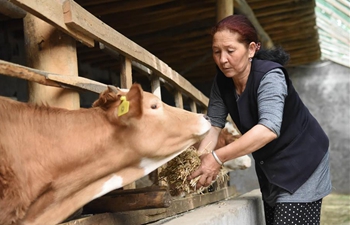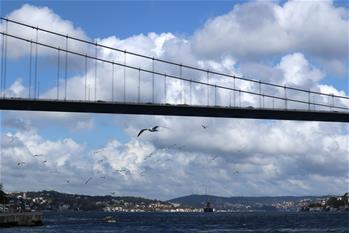BERLIN, Sept. 11 (Xinhua) -- Germany's Institute for Economic Research (DIW) demanded additional government investment against looming recession in the country on Wednesday.
The investment program should be "long-term for 15 years" and should generate 30 billion euros (33 billion U.S. dollars) in "additional public investment, mainly in infrastructure, education and innovation," DIW President Marcel Fratzscher told the German Funke media group.
DIW warned that economic growth in Germany would decline to 0.5 percent this year. While "strong domestic consumption can cushion weak demand from abroad", global conflicts and uncertainties would weigh on the global economy.
According to calculations by DIW, a no-deal Brexit could reduce economic growth by 1.1 percentage points in Britain, 0.2 percentage points across the eurozone and 0.4 percentage points in Germany in the coming year.
The measures agreed by the German government would result in additional financial impulses of more than 15 billion euros in 2019, 10 billion in 2020 and almost 17 billion euros in 2021. According to DIW, government investments would "boost growth in Germany by almost 0.3 percentage points per year."
This week, members of the Bundestag are debating Germany's national budget for 2020 which was presented by Finance Minister Olaf Scholz who is seeking to continue the so-called black zero policy, a budget without new debts, which the German government has adhered to since 2014.
Because of historically low interest rates, there would be good opportunity for the German government to increase investments, DIW noted, adding that the "black zero is not a meaningful economic policy in itself. Moving away from it would be a first step."
Fratzscher told the Funke media group that "the black zero is not an end in itself, but necessary in good times so that the state can have a stabilizing effect in bad times."
"We are now in more difficult times and it is time for politicians to take action," added Fratzscher.
Forecasts for Germany's economy by the Kiel Institute for the World Economy (IfW) are even lower. IfW expects the largest economy in the eurozone to grow by only 0.4 percent in 2019. In 2018, the German economy still grew by 1.5 percent.













